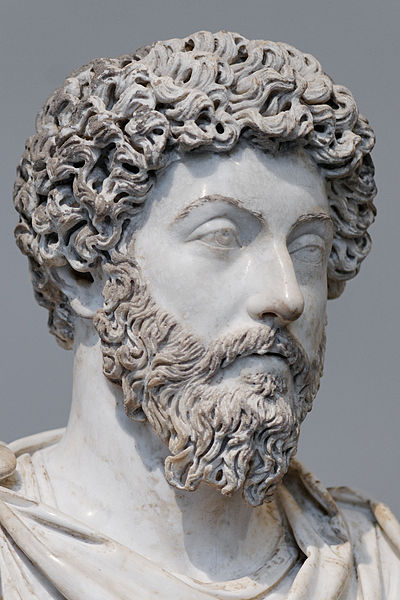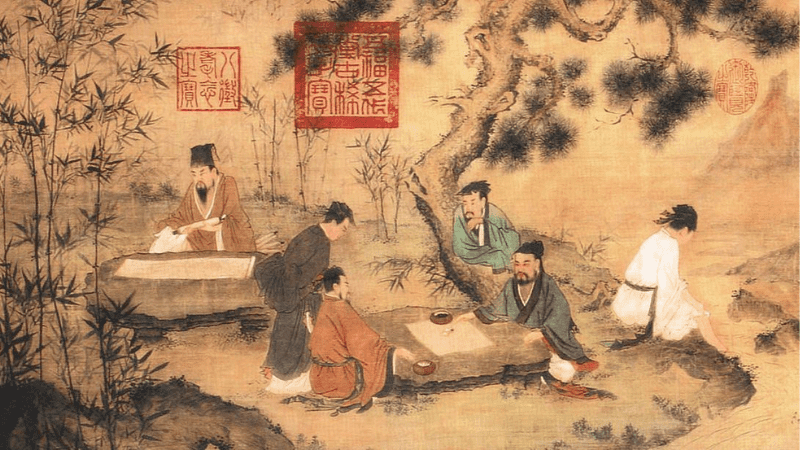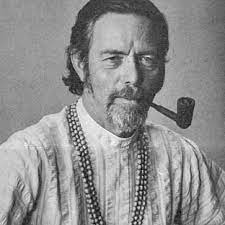The Best Philosophies for Beginners (Everything You Need to Know)
Over the past few years, Simon and I have been very involved with the subject of philosophy. Through the experience I've gained during this time, I now know that I started out with far too heavy a diet. Of course it's important to have fun with the whole thing, but you don't learn to swim on the high seas.
The best philosophers for beginners are often the founders of the various philosophies. To establish a philosophy, one must be able to explain the principles as simply as possible. But there are other philosophers besides the founders of the philosophical schools who let us understand the subjects in a simple way.
Of course, it would be a bit vague to claim that there is not one or another philosopher who is a bit easier or a bit harder to understand. For us in the West, it is usually easier to understand a school of thought that is consistent with our values. That is, philosophies that emerge from our cultural circles are more easily understood by us than, for example, Far Eastern philosophies.
However, it is equally important to note that all philosophies, as long as they are not lived out, are nothing more than words. This is not to say that one must subscribe to a philosophy and then adamantly follow all of its rules. But it is important to understand that one can spend an eternity with philosophies. If you don't actively incorporate them into your daily life, they will have little effect.
The ancient Greeks
Whether Socrates, Plato, Heractlitus, Pythagoras or anyone else was the first great philosopher is a matter of taste. What is not a matter of taste, however, is that there is a lot to learn in the early stages of philosophy. Most Greek philosophers did not use long complicated words, nor did they talk about abstruse topics.
You have dealt with the principles of human existence. What it means to be a good person, to love and to live.
Socrates who is known as the founder of Western philosophy, did not write any texts himself. The philosophical transcripts we have from him today are mostly from Plato, his student. Socrates believed that we know next to nothing, and that the more we know, the more we realize how little we know.
In times of the Internet and YouTube, however, it is very easy to acquire a lot of knowledge in a short time. Or rather to retrieve a lot of knowledge. That every single person nowadays has access to almost the entire knowledge of mankind, makes us quickly forget how much we still do not know. Things that cannot be learned from the Internet. At any given moment, there is an endless number of things we don't know. This is a fact that has not changed since the time of Socrates.
Plato was the student Socrates. So, if you want to learn more about Socrates' views, it is inevitable to deal with Plato. Most of his texts are written in the form of dialogues. In almost all of these dialogues Socrates has the main role.
The mere fact that we are still talking about the words of these ancient philosophers 2500 years after their demise is proof enough that they are still relevant and true, shows that they have always been relevant throughout history - and will probably remain so. Otherwise, they would have already fallen victim to the ravages of time and been forgotten. For every generation since 2500 years their words, sometimes more sometimes less, have been important.
Here you will find two quotes whose meaning we will take a closer look at:
- Plato
"He who is not satisfied with what he has will not be satisfied with what he wants to have."
- Socrates
The Stoics

Marcus Aurelius was a Roman emperor and stoic. He led two successful wars for the Roman Empire during his reign and suffered tragic strokes of fate, yet his stoic attitude kept him on course.
His best known works are the Meditations. The Meditations are a short book, not even 100 pages long, which contains practical tips for stoic life. Besides the meditations, Marcus Aurelius also wrote other books that help to understand and train oneself in stoic action.
Lucius Annaeus Seneca was also a Stoic. However, there are considerably fewer writings by him than by Marcus Aurelius. Seneca was much criticized at the time because he preached modesty, but was one of the richest men in Rome. His actual lifestyle is partly contrary to what he said, but that does not make his statements about a modest lifestyle less correct.
Seneca's most famous book is from happy life, and has less than 200 pages. It is therefore well suited for beginners. Also, it does not have an above-average complicated language.
We have covered quite a few quotes from the Stoics, feel free to look around. For a large collection and a more detailed explanation of who the Stoics were and what they stood for, see in this article.
Far-Eastern Philosophies
Of course, one cannot talk about philosophies without looking at the Eastern philosophies. Even though Buddhism and Hinduism are religions, one should take into account that they are religions from which one can gain a lot of philosophical views. Daoism, on the other hand, is not a religion, but actually a philosophy. Similar to the ancient Greeks, Daoism is also over 2000 years old, but despite this, the approaches of this philosophy are not outdated.
Daoism

If there is one philosopher you have to deal with if you are interested in Daoism, it is Laozi (Lao-tzu, Lao-Tzu, Laudse, Lao Tzu, Lao-Tzu).
Laozi is considered the founder of Daoism, he created the Tao Te King written. The Tao Te King is a book with 81 chapters. In the first 37, the basic philosophical principles of Daoism are explained. In the remaining 44 how to apply these basic principles.
Personally I find the Tao Te King a very pleasant book to read. Even if you don't understand everything from the beginning, you will understand one or the other approach. And the more you read it, the more you will understand and the more ways of looking at things will open up to you.
You will find many articles on our blog about Daoist views and specifically about quotes from Lao Tzu and their meaning. Here we look at for example "Care what other people think and you will always be their prisoner." an.
Daoism fascinates you? Check out this article: Everything you need to know about Daoism: the history, beliefs and practices.
Buddhism
In contrast to Daoism, Buddhism is a religion, but one that is dedicated to the formation or liberation of one's own mind. Those who follow the path of the Buddha will sooner or later head for their own enlightenment. To reach this enlightenment, Buddhism offers a wide range of basic philosophical principles.
As with Daoism, it is especially recommended to study the founder of the religion. When people talk about Buddha, they often mean Siddhartha Gautama, the first Buddha. To our regret, he did not produce any writings himself. The writings that we have are from his disciples, but at first the teachings were only passed on orally until they were written down.
Confucianism

Confucianism is, as the name suggests, based on Confucius. Confucianism is very conservative from a modern perspective. One is expected to honor one's parents and one's government - or more simply, anyone above one in the social hierarchy. Of course, there is more to Confucianism than just the rule of honoring parents, or the government, respectively. All in all, there are the "Five Constants" in Confucianism:
- Humanity
- Justice
- ritual decorum
- Wisdom
- Sincerity
These Five Constants are to be cultivated and improved, or mastered, throughout one's life.
Confucius also attached great importance to keeping rituals. These provide, among other things, for a stable coexistence in a society. What also leads to his orderly coexistence is that each individual must know his role in society. According to Confucius, there are five elementary human relationships, these are:
- Father - Son
- Ruler - subject
- Husband - Wife
- Older brother - Younger brother
- Friend - Friend
The lack of a mother-daughter, father-daughter or older sister-younger sister relationship is probably due to the social order of the time. For Confucius, it was very important that these relationships be like the wind and the grass: when the wind blows, the grass must bend. Likewise, those who have a lower place in the social hierarchy should obey those who have a higher rank.
If you are interested in Confucianism we present here the best books for beginners before.
Existentialism
For most of history, philosophers assumed that every human being has a being. This essence, however, is assigned to the human being even before his birth. That is, as soon as we are born, we have a goal or a task. In the 20th century, however, a new philosophical view emerged in France. Namely, that first the birth of the human being takes place and the being is assigned only then, to the body. In this philosophical view, we do not have to follow a path that is presupposed before our birth, by our being, but are free to choose our own path.
Two appropriate philosophers, as examples of existentialism are. Jean-Paul Sartre and Albert Camus.
Jean-Paul Sartre is considered the founder and main representative of existentialism. He believed that each person must find his own way. Of course, he said, one can be guided by the family, the church or the government. However, all people we can take as role models also have to find their own way, because no one can have all the answers of life. Sartre also believed that any meaning you find in your life comes from you and your views.
Albert Camus is also one of the most famous philosophers of existentialism. He even received a Nobel Prize in Literature in 1957 for his complete works. Camus believed that the meaning of life is everything that keeps you from committing suicide. This may sound a bit exaggerated, but by definition it is definitely undeniable.
Click here for an article about Camus quote "To live is to act.", but you can find more articles about quotes from Camus on our blog.
Other

Alan Watts was the philosopher who got me, and my brother Simon, philosophizing. Alan Watts is a British philosopher, but he has drawn most of his philosophical knowledge from Zen Buddhism, Daoism and Hinduism. He has taken various approaches from the different philosophies, put them together and summarized them for the average Western person.
Alan Watts has written a large number of books. However, he was also a university professor and gave many lectures. There are hundreds of these lectures on YouTube. For starters, I would advise against picking a two-hour lecture. There are many compilations of such lectures, which last on average between 5-20 minutes and represent the topic simplified optimal. In the first two or three videos, you may not understand very much, but for me, even early on, there were always moments when I could understand exactly what he meant. You will probably feel the same way.
We have covered a huge bunch of his quotes and reflections. You can find an article with a great overview here. Also let's take a closer look at who and how Alan Watts really was.
Rene Descartes was a rationalist. This means that there is nothing more reliable for faith and action than reason. Descartes believed that the best way to solve big problems was to break them down into smaller problems that were easier to solve. Through this rational approach, even the biggest problems can be tackled piece by piece and ultimately read.
His most famous sentence "I think, therefore I am."is still familiar to us today. What Descartes has said with it, hung rather not. The statement refers to the fact that we can never be completely sure whether everything we perceive is actually happening or whether it is rather a kind of illusion or dream. In his opinion, the fact that we are able to think is the proof of our existence.
Descartes used the example of not being sure if you are sitting in your living room watching the fire in the fireplace. Or whether this is just a fantasy. But what he could say without any doubt was the fact that he thought, or rather could think. After all, you can't think and wonder whether you exist or not if you didn't exist. From this thought springs the quotation, "I think, therefore I am."
So, these were the simplest philosophies for beginners. As mentioned before, these are not my own guidelines, but rather empirical values that I, my brother Simon and several others have collected.
Just have fun with the process and let what interests you. And please don't be discouraged if you don't understand certain philosophical approaches. It happens to everyone.
Did you like this article? You can let us inform you about new articles:







